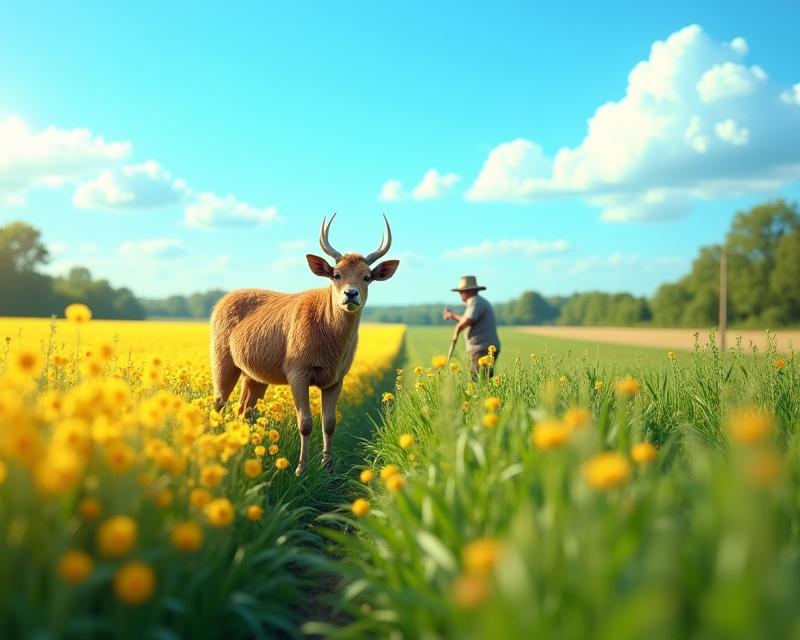Sustainable Farming: A Better Future
Publish in Sustainable Farming el 28/06/2025 22:32
Sustainable Farming: A Better Future
Modern agriculture faces unprecedented challenges – climate change, soil degradation, and dwindling resources. But there's a powerful solution gaining momentum: sustainable farming. It's not just a trend; it's a necessary shift towards a healthier planet and a more resilient food system. Sustainable practices prioritize long-term ecological balance alongside economic viability, ensuring farms can thrive for generations to come.

What is Sustainable Farming?
Sustainable farming encompasses a wide range of techniques designed to minimize environmental impact while maintaining productivity. It focuses on building healthy soil, conserving water, reducing chemical inputs, and promoting biodiversity. Instead of relying heavily on synthetic fertilizers and pesticides, sustainable farmers employ methods like crop rotation, cover cropping, and integrated pest management. This holistic approach creates a more balanced ecosystem within the farm and beyond.
Key Sustainable Practices
Several key practices form the backbone of sustainable agriculture. Crop rotation helps improve soil health and reduce pest problems. Cover cropping protects the soil from erosion and adds organic matter. No-till farming minimizes soil disturbance, preserving its structure and carbon content. Integrated pest management (IPM) uses a combination of methods – biological controls, cultural practices, and targeted pesticide applications – to manage pests effectively. Water conservation techniques, such as drip irrigation, are crucial in drought-prone areas. Furthermore, promoting biodiversity through hedgerows and pollinator gardens enhances the farm's resilience.
Benefits of Adopting Sustainable Methods
The advantages of sustainable farming extend far beyond environmental protection. Farmers often experience improved soil health, leading to increased yields and reduced input costs. Consumers benefit from healthier, more nutritious food grown without harmful chemicals. Sustainable farms can also enhance their long-term economic viability by reducing their reliance on external inputs and building resilience to climate change. Ultimately, adopting sustainable practices is an investment in a healthier future for all.





